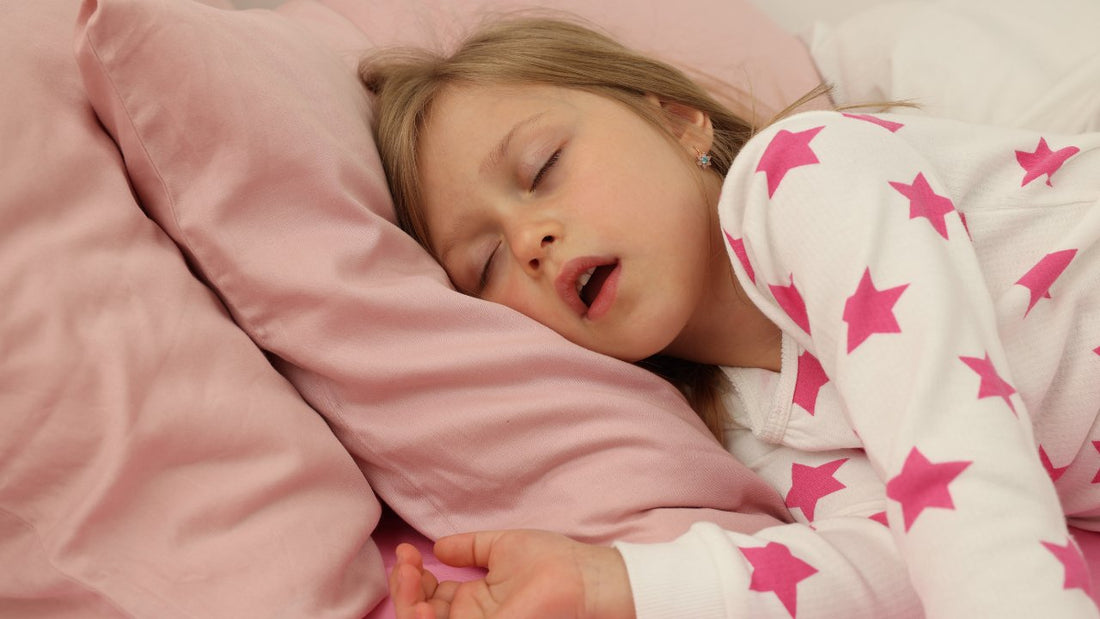
Is Sleep Apnea Genetic?
Share
Sleep apnea is a common sleep disorder that affects millions of people worldwide. It causes breathing to repeatedly stop and start during sleep, leading to daytime sleepiness, fatigue, and more serious health issues if left untreated. Given its prevalence, many people wonder: Is sleep apnea genetic? Does it run in families, or is it something that develops later in life due to lifestyle and environmental factors? In this blog, we will explore the potential genetic links to sleep apnea and discuss how family history could play a role in the condition.
Is Sleep Apnea Genetic or Hereditary?
To address the question of whether sleep apnea is genetic, it's important to clarify the two main types of the condition: obstructive sleep apnea (OSA) and central sleep apnea (CSA). Both have different causes, but genetics can play a role in either case.
-
Obstructive Sleep Apnea (OSA):
OSA is the most common form of sleep apnea, characterized by a physical blockage of the upper airway during sleep. This blockage is typically caused by the relaxation of muscles at the back of the throat. But is obstructive sleep apnea genetic? Research suggests that OSA can indeed be influenced by genetic factors, particularly when it comes to traits such as airway structure, body fat distribution, and the size of your tongue or tonsils. These traits, which can be inherited, increase the likelihood of developing OSA. -
Central Sleep Apnea (CSA):
Unlike OSA, central sleep apnea occurs when the brain fails to send the proper signals to the muscles that control breathing. While central sleep apnea is less common, there is evidence that it can also have a genetic component, although the mechanisms are different from those seen in OSA. So, if you're wondering, "Is central sleep apnea genetic?" the answer is yes, but the inheritance patterns are still being studied.
Does Sleep Apnea Run in Families?
Now that we've established that genetic factors can influence the development of sleep apnea, you might ask, does sleep apnea run in families? The short answer is yes, but it's not the whole picture. While you can inherit physical traits that increase your risk for sleep apnea, other factors like lifestyle and environment also play a significant role. For example, if both parents have sleep apnea, there’s a higher likelihood that their children will develop it as well, but the disorder isn’t guaranteed.
Families often share similar sleep habits, diets, and activity levels, all of which can contribute to the development of apnea syndrome. This makes it tricky to pinpoint whether sleep apnea is due purely to genetics or other factors like obesity and a sedentary lifestyle, both of which are strong risk factors for the condition.
Are You Born with Sleep Apnea?
The question, are you born with sleep apnea? is more complex than it seems. You are not necessarily born with sleep apnea in most cases, but you can be born with genetic predispositions that make it more likely to develop later in life. Certain anatomical characteristics, such as a narrow airway or larger-than-average tonsils, can be inherited and put you at higher risk for OSA.
Additionally, certain syndromes or genetic conditions—like Down syndrome or Marfan syndrome—are associated with a higher likelihood of developing sleep apnea due to the physical traits linked to these conditions.
How Genetic Factors Influence Sleep Apnea
So, how exactly do genetic factors contribute to the development of sleep apnea? Research has shown that there are specific genes related to the way your body regulates breathing, your sleep-wake cycle, and how your brain controls muscle relaxation during sleep. These genetic factors can increase your susceptibility to apnea syndrome. Moreover, traits such as body fat distribution and neck circumference, which are partially genetically determined, are known to influence sleep apnea risk.
Even though genetic sleep apnea is a recognized concept, it's important to understand that the disorder is multifactorial. This means that while hereditary sleep apnea is a reality, environmental factors like diet, exercise, and even the quality of your sleep environment can also contribute to whether or not the condition develops.
Apnea Treatment: How Family History Plays a Role
Understanding your family’s medical history is crucial in identifying whether you're at risk for sleep apnea. If you have close relatives with the disorder, it’s important to mention this to your doctor during a consultation. Sleep medicine specialists may take a more proactive approach in screening for sleep apnea if there's a known family history.
If diagnosed, one of the most common apnea treatments is CPAP therapy. A CPAP mask helps to keep the airway open while you sleep, reducing the number of apneas and improving sleep quality. While CPAP therapy is highly effective, it may not be for everyone, and exploring other options, such as lifestyle changes or surgery, might be necessary depending on the severity of the condition.
Conclusion
In conclusion, sleep apnea can have a genetic component, but it’s usually not caused by genetics alone. The disorder is influenced by a mix of inherited physical traits and lifestyle factors, meaning that while your family history may increase your risk, it’s not the sole determinant. If you’re concerned about your risk of developing sleep apnea, especially if it runs in your family, it’s important to consult a sleep medicine specialist for proper screening and treatment. Whether through CPAP therapy or other treatments, managing sleep apnea can help improve your overall health and prevent more serious complications down the line.
